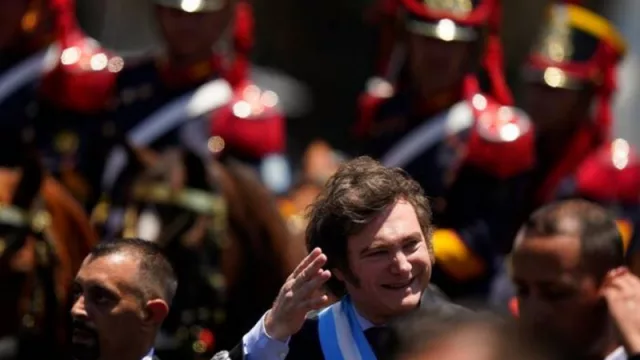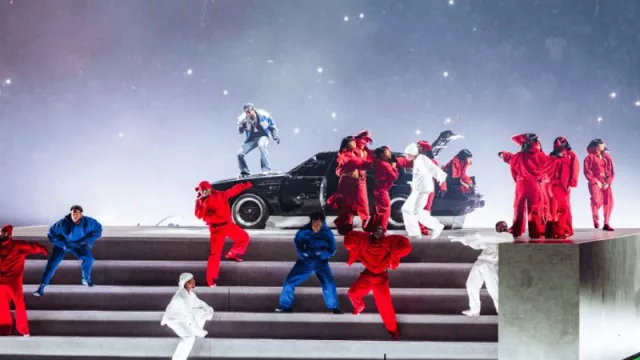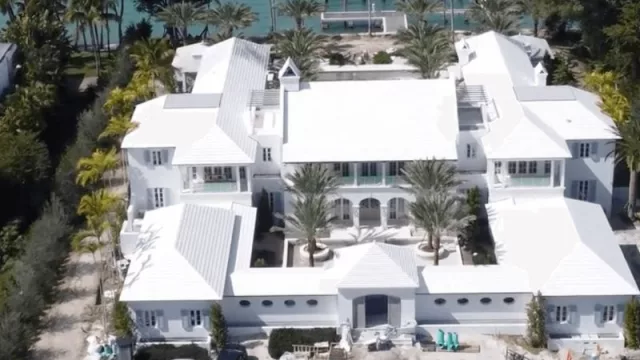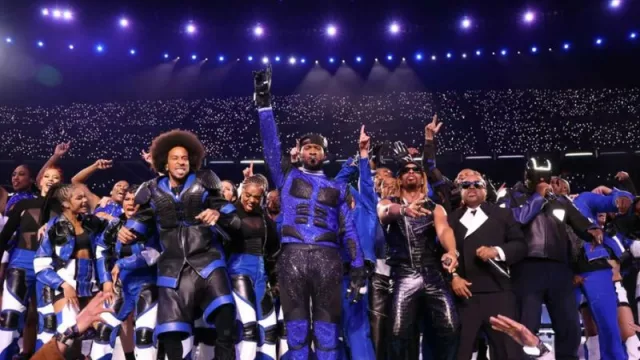Has any Libertarian Liberal president ever received this many votes and such a percentage, and what does this mean for all of America and the future of politics?
Challenges and changes in the Latin American Political Scenario in 2023
Guatemala also underwent a democratic shift in 2023, transitioning from a right-aligned administration to a more progressive government.
However, other countries like Cuba, Ecuador, and Paraguay maintained their ideological orientation. Despite the drastic change in Argentina, most of Latin America is still governed by left-wing forces, highlighting polarization in the political spectrum.
From a realistic and factual standpoint, should the concept of the left evolve towards a new one of social coherence and statism, instead of statism?
Did this "right" evolve more towards that coherence and harmony of administrative impeccability and balanced social and individual development?
Bloomberg Map.
Did this happen due to its successive defeats?
Is the "right" much more self-critical and realistic today?
Is the left still making too many gross mistakes, for example, by not condemning totalitarianism and crimes in Venezuela and Cuba? Or do
Dogmatizing speeches about external debt justify poverty, the poor performance of their governments, terrorism, state corruption, which are just a distortion of the truth?
Is there a new left or center-left, which has a mix of free-market coherences and institutional order as applied in Chile and El Salvador? (For many, its tough policies do not imply being on the right but rather a liberal socialism, orderly and impeccable, in a serious context that has had to address crime and terrorism; it's most accurate definition is center-left).
Isn't it time for society, political parties, media, and "pseudo-leftist militant journalists" to have a much more realistic and common sense, and not everything, proof, or journalism that shows reality, be treated as neo-Nazi or "far-right"?
Reflections on the Latin American Political Dynamics
The alternation between left and right-wing governments has been a constant in recent years. In 2021 and 2022, seven Latin American countries democratically chose to change the political sign of their governments. This change, for the most part, involved the transition from administrations more aligned with the right to progressive or left-wing governments, as was the case in Peru, Honduras, Chile, Colombia, and Brazil.
Political nuances in the region: Despite ideological definitions, the region presents political nuances that are not limited to extremes. Political oscillation is evident in examples like Brazil, where the presidency has swung between right-wing leaders like Jair Bolsonaro and left-wing figures like Luiz Inácio Lula da Silva.
Ecuador also experienced a reverse change, transitioning from a left-wing government to a right-wing one with Guillermo Lasso.
Political Map of Latin America: Trends and Challenges
In terms of political orientation, the region shows a clear predominance of left-wing governments, with exceptions such as El Salvador, Panama, and the Dominican Republic, presenting themselves as centrist or avoiding open association with the right or left.
Mexico, Venezuela, and Uruguay are also gearing up for presidential elections in 2024, which could influence the regional political landscape.
Analysis of the Current Political Configuration
With 13 countries aligned to the left and 10 to the right or center-right, the region is in a delicate balance that could experience significant changes in future elections. However, there persists a tense atmosphere marked by uncertainty about new governments, closely watched by society for clear and effective direction.
Map according to Statista.com
A call for political renewal without ideological constraints, letting go of and evolving old partisan dogmas, is beginning to resonate in independent media, influencers, thinkers, and many young sectors:
The world has progressed; today, one must be more careful with the abuse of powers that have nothing to do with the forms of power in the last century or the objectives of those powers.
Today, political awareness must be very active, as what seems good from a social discourse is often quite bad in practice and results, and what seems harsh is ultimately right and the way to prosperity, order, and justice.
The political dynamics in Latin America reflect a constant battle between left and right, with periodic changes reflecting society's preferences at each moment.
However, the question arises: Until when will the political map be a struggle between ideologies instead of being based on civic impeccability, administrative excellence, the efficiency of ideas and management, the fulfillment of results, and above all, truth as a good and not as a partisan interpretation that has nothing to do with reality?
Is it possible to set aside dogmas and create a new politics based on solid principles of state management and qualitative-quantitative indicators, rather than "fanatizing" interpretations of real indicators and distorting them all the time?
Is there no awareness that this "militancy" not only tires but also does a lot of harm to the lives of nations?
Regarding Future Elections in Latin America
With pending elections in Mexico, Venezuela, and Uruguay in 2024, the region is at a crucial moment. These elections could influence the regional political landscape and define the region's direction in the coming years. Uncertainty and anticipation surround these electoral processes, as society closely watches the events that will shape the political future of Latin America.












Tu opinión enriquece este artículo: